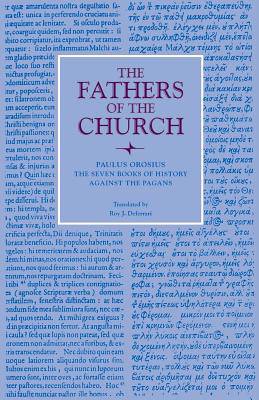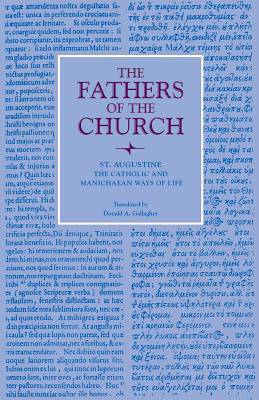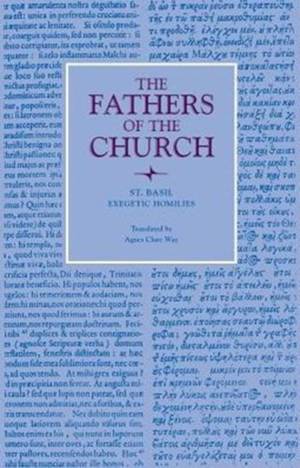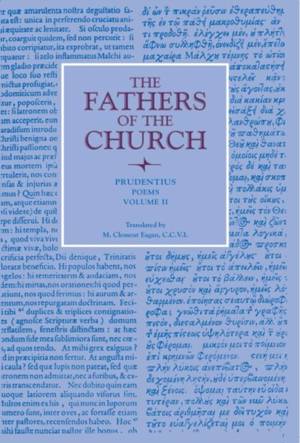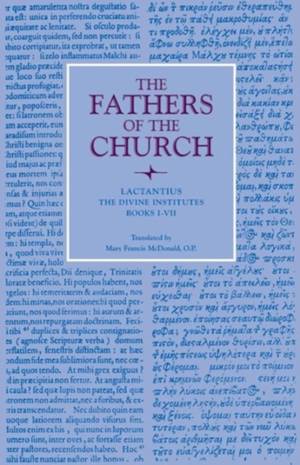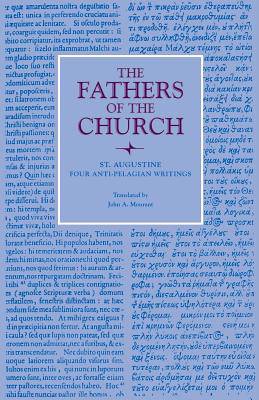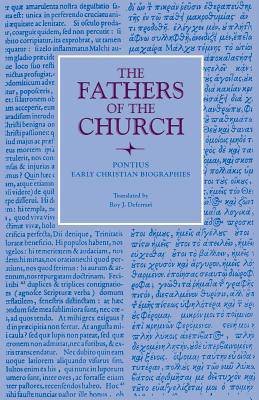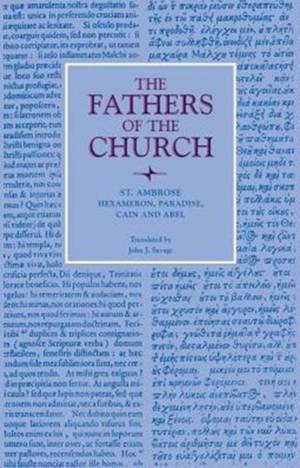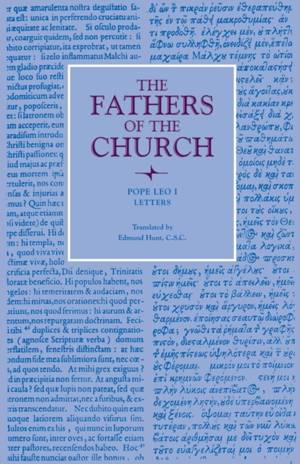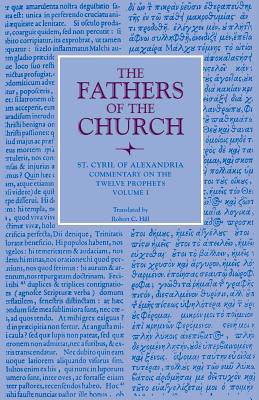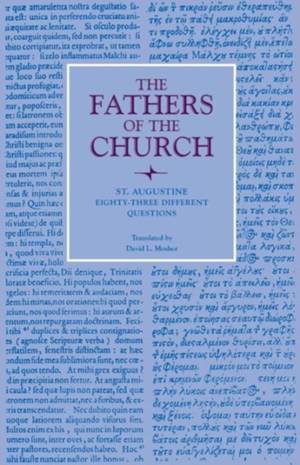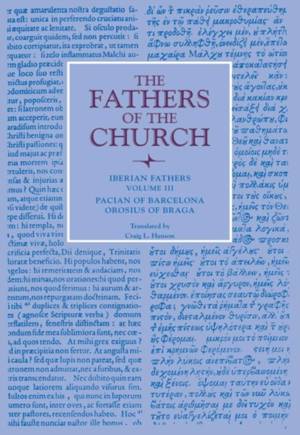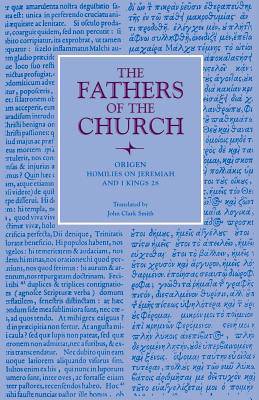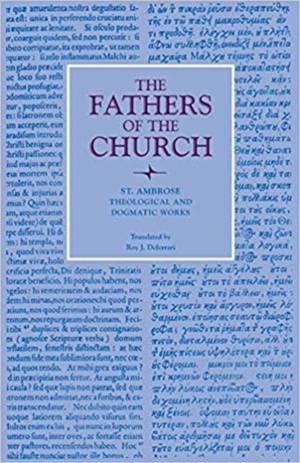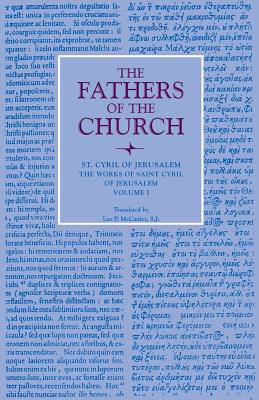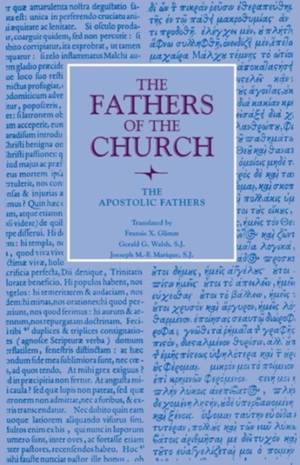
Bedankt voor het vertrouwen het afgelopen jaar! Om jou te bedanken bieden we GRATIS verzending (in België) aan op alles gedurende de hele maand januari.
- Afhalen na 1 uur in een winkel met voorraad
- In januari gratis thuislevering in België
- Ruim aanbod met 7 miljoen producten
Bedankt voor het vertrouwen het afgelopen jaar! Om jou te bedanken bieden we GRATIS verzending (in België) aan op alles gedurende de hele maand januari.
- Afhalen na 1 uur in een winkel met voorraad
- In januari gratis thuislevering in België
- Ruim aanbod met 7 miljoen producten
Zoeken
Reeksen: boeken uit de reeks Fathers of the Church Patristic
-
Dogmatic and Polemical Works
St Jerome
- Paperback | Engels | Fathers of the Church Patristic
- St. Jerome's reputation rests primarily on his achievements as a translator and as a scriptural exegete. The important service that he rendered to the... Lees meer
€ 72,95Levering 2 à 3 weken€ 72,95Levering 2 à 3 weken -
Seven Exegetical Works
St Ambrose
- Paperback | Engels | Fathers of the Church Patristic
- St. Ambrose, Bishop of Milan A.D. 373-397, enjoyed a great contemporary reputation for his sermons and homilies, to whose eloquence St. Augustine of H... Lees meer
€ 72,95Levering 2 à 3 weken€ 72,95Levering 2 à 3 weken -
The Seven Books of History Against the Pagans
Paulus Orosius
- Paperback | Engels | Fathers of the Church Patristic
- Orosius wrote the first Christian Universal History, ""Historiarum adversus paganos libri septem."" It has been thought to be a supplement to the ""Ci... Lees meer
€ 72,95Levering 2 à 3 weken€ 72,95Levering 2 à 3 weken -
The Catholic and Manichaean Ways of Life
St Augustine
- Paperback | Engels | Fathers of the Church Patristic
- The Catholic and Manichaean Ways of Life is, like the Contra academicos (386) and the works of St. Augustine's later life against the Donatists and ot... Lees meer
€ 72,95Levering 2 à 3 weken€ 72,95Levering 2 à 3 weken -
Exegetic Homilies
St Basil
- Paperback | Engels | Fathers of the Church Patristic
- In a relatively short life time St. Basil (ca. 330-379) bequeathed to posterity a rich literary heritage. He intended the nine homilies on the Hexaeme... Lees meer
€ 72,95Levering 2 à 3 weken€ 72,95Levering 2 à 3 weken -
Poems, Volume 2
Prudentius
- Paperback | Engels | Fathers of the Church Patristic
- The poems of Aurelius Prudentius appear in two volumes of the present series, i.e., Volume 43 and this volume, 52. It cannot be said that poetry, in a... Lees meer
€ 72,95Levering 2 à 3 weken€ 72,95Levering 2 à 3 weken -
The Devine Institutes, Books I-VII
Lactantius
- Paperback | Engels | Fathers of the Church Patristic
- Biographical data on Lactantius are meager. In his catalogue of illustrious men St. Jerome informs us that Lactantius studied under Arnobius. Acceptin... Lees meer
€ 72,95Levering 2 à 3 weken€ 72,95Levering 2 à 3 weken -
Christian Instruction; Admonition and Grace; The Christian Combat; Faith, Hope and Charity
St Augustine
- Paperback | Engels | Fathers of the Church Patristic
- The translated works in this volume have been dated variously either to the beginning or to the final decade of Augustine's career as Bishop of Hippo.... Lees meer
€ 72,95Levering 2 à 3 weken€ 72,95Levering 2 à 3 weken -
Four Anti-Pelagian Writings
St Augustine
- Paperback | Engels | Fathers of the Church Patristic
- This volume brings together writings from early and late stages of Augustine's involvement in the Pelagian controversy. On Nature and Grace and On the... Lees meer
€ 72,95Levering 2 à 3 weken€ 72,95Levering 2 à 3 weken -
Early Christian Biographies
Pontius
- Paperback | Engels | Fathers of the Church Patristic
- Most readers are quite likely to have some basic information about St. Cyprian (d. 258), St. Ambrose (ca. 339-397) and St. Augustine (354-430). Fewer ... Lees meer
€ 72,95Levering 2 à 3 weken€ 72,95Levering 2 à 3 weken -
Hexameron, Paradise, Cain and Abel
St Ambrose
- Paperback | Engels | Fathers of the Church Patristic
- Steeped in Greek Christian writings, Ambrose, Bishop of Milan in the fourth century, is known for (among other achievements) his allegorical exegesis ... Lees meer
€ 72,95Levering 2 à 3 weken€ 72,95Levering 2 à 3 weken -
Sermons, Volume 1 (1-80)
St Caesarius
- Paperback | Engels | Fathers of the Church Patristic
- Caesarius, Bishop of Arles in post-Roman Gaul from 503 to 543, served as the spiritual and administrative leader of an ecclesiastical province that pl... Lees meer
€ 72,95Levering 2 à 3 weken€ 72,95Levering 2 à 3 weken -
Letters
Pope Leo I
- Paperback | Engels | Fathers of the Church Patristic
- As the vestiges of the Roman political machine began to collapse in the fifth century A.D., the towering figure of Pope St. Leo the Great came into re... Lees meer
€ 72,95Levering 2 à 3 weken€ 72,95Levering 2 à 3 weken -
Commentary on the Twelve Prophets, Volume 1
St Cyril of Alexandria
- Paperback | Engels | Fathers of the Church Patristic
- Cyril, Bishop of Alexandria (412-444), is best known as a protagonist in the christological controversy of the second quarter of the fifth century. Re... Lees meer
€ 72,95Levering 2 à 3 weken€ 72,95Levering 2 à 3 weken -
Eighty-Three Different Questions
St Augustine
- Paperback | Engels | Fathers of the Church Patristic
- In the autumn of A.D. 388, St. Augustine returned from Italy to northern Africa. Here in his native Thagaste he assembled a monastic community. When t... Lees meer
€ 72,95Levering 2 à 3 weken€ 72,95Levering 2 à 3 weken -
Ascetical Works
St Gregory of Nyssa
- Paperback | Engels | Fathers of the Church Patristic
- In the Christian world of the fourth century, the family of St. Gregory of Nyssa was distinguished for its leadership in civic and religious affairs i... Lees meer
€ 72,95Levering 2 à 3 weken€ 72,95Levering 2 à 3 weken -
Iberian Fathers, Volume 3 Pacian of Barcelona, Orosius of Braga
Pacian of Barcelona, Orosius of Braga
- Paperback | Engels | Fathers of the Church Patristic
- In recent years historians and theologians have focused considerable attention on the church of late antiquity. The Constantinian revolution of the ea... Lees meer
€ 72,95Levering 2 à 3 weken€ 72,95Levering 2 à 3 weken -
The City of God, Books VIII-XVI
St Augustine
- Paperback | Engels | Fathers of the Church Patristic
- This volume continues the translation of St. Augustine's monumental work The City of God, a product of his vast erudition. Three books in particular, ... Lees meer
€ 72,95Levering 2 à 3 weken€ 72,95Levering 2 à 3 weken -
Commentary on the Epistle to the Romans, Books 6-10
Origen
- Paperback | Engels | Fathers of the Church Patristic
- This volume completes the first English translation of Rufinus's Latin version of Origen of Alexandria's Commentary on the Epistle to the Romans and c... Lees meer
€ 72,95Levering 2 à 3 weken€ 72,95Levering 2 à 3 weken -
Homilies on Jeremiah and I Kings 28
Origen
- Paperback | Engels | Fathers of the Church Patristic
- Souls existing before their bodies, witches summoning dead prophets from the underworld, the return of the damned--and the Devil himself--to God in th... Lees meer
€ 72,95Levering 2 à 3 weken€ 72,95Levering 2 à 3 weken -
Theological and Dogmatic Works
St Ambrose
- Paperback | Engels | Fathers of the Church Patristic
- These four essays of Ambrose, the forceful and scholarly Bishop of Milan and the metropolitan of the churches of northern Italy in the late fourth cen... Lees meer
€ 72,95Levering 2 à 3 weken€ 72,95Levering 2 à 3 weken -
The Works of Saint Cyril of Jerusalem, Volume 1
St Cyril of Jerusalem
- Paperback | Engels | Fathers of the Church Patristic
- Cyril's life of some seventy years, placed in the very center of the fourth century, epitomizes much that was characteristic of the period and the loc... Lees meer
€ 72,95Levering 2 à 3 weken€ 72,95Levering 2 à 3 weken -
Letters, Volume 4 (165-203)
St Augustine
- Paperback | Engels | Fathers of the Church Patristic
- The Letters appearing here in translation were written approximately between the years 410 and 420. This period in Augustine's life coincides with the... Lees meer
€ 72,95Levering 2 à 3 weken€ 72,95Levering 2 à 3 weken -
The Apostolic Fathers
Apostolic Fathers
- Paperback | Engels | Fathers of the Church Patristic
- The name "Apostolic Fathers" was first applied in 1672 to a group of five writers who were taken either to have been in touch directly with some of th... Lees meer
€ 72,95Levering 2 à 3 weken€ 72,95Levering 2 à 3 weken









